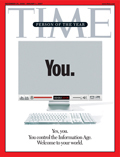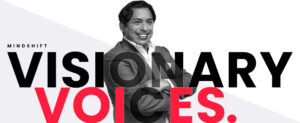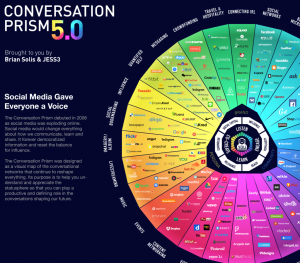
Nevermind Sacha Baron Cohen’s ability to make us laugh while holding up a mirror to our ugliest traits, Al Gore’s exposing platform to get millions inspired about environment, Sir Bono’s tireless work in Africa, Michael J. Fox’s spotlight on stem cell politics, Time Magazine’s person of the year this year is “you” or “us” depending on how you look at it.
Let’s be clear. There is bottomless well of assholes around the world to spotlight and blame for the many agonizing, unnecessary, and disturbing things that happened in 2006.
But, let’s celebrate and bask in the moment that is ours. We are Time’s Person of the Year. We have renewed the very basis of democracy, paying homage to and re-igniting the passion behind the preamble to this nation’s constitution, “We the people.” It’s all because of the World Wide Web and the visionary entrepreneurs and programmers that developed a more interactive platform for consuming, producing, and sharing content.
According to Time, this is not evolution, it’s revolution and people are changing the way people change the world, “In 2006, the World Wide Web became a tool for bringing together the small contributions of millions of people and making them matter.”
While the tech set has brushed the story off as a corny attempt at capitalizing on the democratization of the Web, I find it a fascinating legitimization of “citizen media.” After all, what’s more traditional than Time Magazine?
I don’t know about you, but I buy it. Here’s why…
I have fought for several years for companies to engage their customers outside of traditional PR and marketing because it was clear that their voices were growing louder with every new 2.0 site or technology that was introduced. I, like many other social media evangelists, recognized the need to build and cultivate communities. However, many businesses weren’t only reticent to accept forms of new media they were down right adverse to and petrified of the idea.
2006 was the year Web 2.0 evolved into something more than a mere buzzword. It was the year that sparked the social revolution…and a social economy.
It’s not just about ridiculously popular sites such as Myspace, Facebook and YouTube, which provided a “working” model for individuals to express themselves and show the world that they too have a voice. Podcasts, blogs, comments, user reviews on sites such as Amazon.com, video blogs, sites with content based on voting such as DIGG and the new Netscape, etc., and even Second Life, have exploded in a cosmic flurry of user generated content aka social media.
Millions of active users forever changed how we participate and define broadcast and print journalism, commerce, politics, entertainment, gaming, and business.
With an increasingly global number of architects creating the new web, 2007 promises only to expand the conversation and force continue the revolution and fusion of traditional and citizen media.
We the people, in order to form a more perfect global union, will democratize the web so that our voices will be heard and that markets will shift in directions that benefit us as consumers and producers.
Please help keep this story popular at NewPR.
Time person year social media social+media web2.0 web+2.0 second+life secondlife lonelygirl15 lonelygirl podcast blog netscape digg time+magazine bono magazine sacha+cohen myspace youtube amazon facebook 2006 2007





2 COMMENTS ON THIS POST To “Time Magazine, Web 2.0 and You”